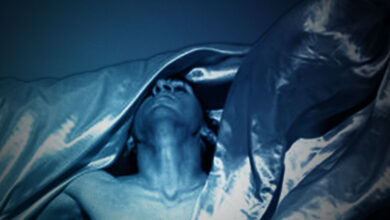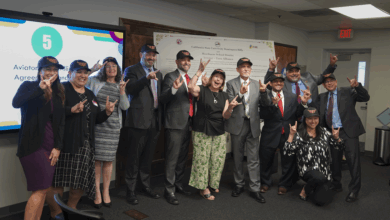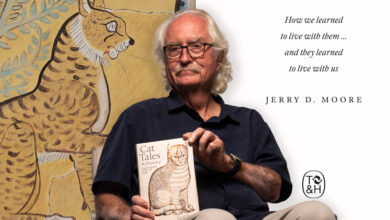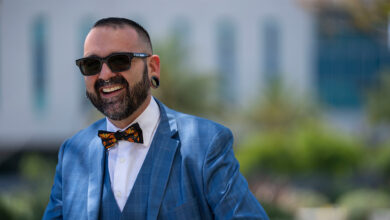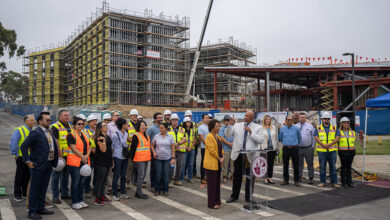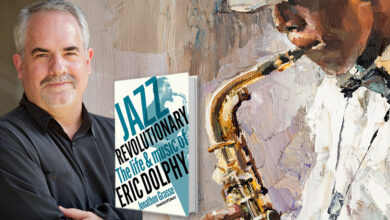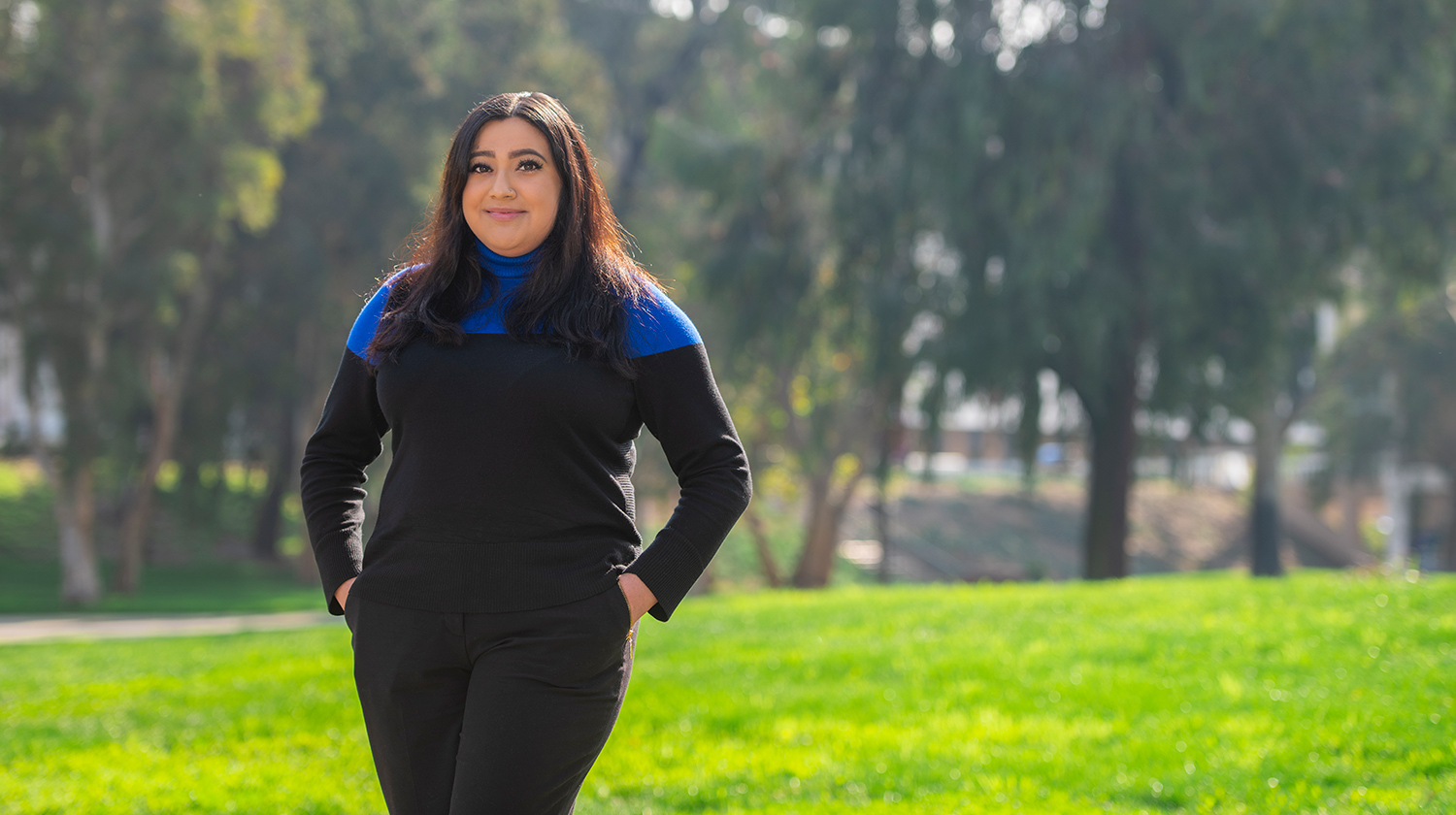
As a force for change on the national stage, and for her wide-ranging contributions to education and Black culture and history, Sallyanne Payton was bestowed a California State University Honorary Doctor of Humane Letters by CSUDH during its 2020-21 Commencement on May 26.
Payton’s career is marked by major milestones and prominent appointments. From the early years at Stanford University and in the administrations of two U.S. presidents, to her work as an educator and leader of the preservation of sacred music, Payton has remained a principled advocate for societal change, and those she inspires.
“It’s wonderful to be recognized by the university. It’s always thrilling when someone confers something on you that speaks to their respect for the work you have done,” says Payton. “Dominguez Hills serves South Los Angeles really well, and the campus makes it possible for people in those communities to have the same range of opportunities as those in the northern part of the city.”
A Good Start
Payton was raised in the historic West Adams neighborhood of Los Angeles in a Black middleclass family. Her mother was a math teacher at Dorsey High School, and her father was an underwriter.
A church-going family, the Paytons often gathered around the piano in their home with a young Sallyanne at the keys reading sheet music and playing spirituals (also known as “Negro Spirituals”). Originally unaccompanied monophonic (unison) songs, spirituals are best known today in harmonized choral arrangements.
“Spirituals would become your household music, and if you were a girl in a Black family that went to church back in the 1940s and 50s, you were going to learn how to play piano, and sing some hymns and spirituals,” Payton shares. “It’s what you did in church every week, and it is part of our culture.”
In honor of her parents, Payton helped establish the Georgia and Nolan Payton Archive of Sacred Music at CSUDH in the early 2000s, which consists of music, books, periodicals, documents, audio and visual materials, and oral histories.
“I am so proud to be able to celebrate this special accomplishment,” says Hansonia Caldwell, professor emeritus of music at CSUDH and founder of the CSUDH Jubilee Choir and the African Diaspora Sacred Music and Musicians program. “Sallyanne is a visionary, purpose-driven woman of substance and discernment who has valued the legacy of African American music and history throughout her life. Because of her continuing generosity, the university is now assured to be an inspiring 21st century center for the preservation and performance of African Diaspora sacred music.”
A Swift Ascent
Payton’s parents also instilled in her the tenets of a successful career and fruitful life. She says, “They taught me to work hard all the times, to keep my eye on the ball, and to take on big projects and complete them.”
Payton left home to attend Stanford University at a time when the university enrolled very few Black students, and the legal profession hired few women or people of color. Undeterred, she earned her bachelor’s degree in 1964, and served as editor of the Stanford Law Review.
In 1968, the year Martin Luther King, Jr. was assassinated, Payton made university history, becoming the law school’s first Black graduate, which helped to cut a path for those who followed. She graduated when the country was at war in Vietnam and the fight for civil rights and racial equality was surging across the nation.
Payton spent several successful years in private practice in Washington, D.C., including a stint at Covington, a leading law firm. At the firm, her workload included pro bono projects involving the Southeast area of D.C., which was home to marginalized communities and had experienced decades of urban decay. Payton’s successes in the region drew the attention of political leaders.
“Working to help rebuild the District of Columbia was the most rewarding project of my entire career. There had been disorder in the city after the assassination of Dr. King, and it had gotten out of hand,” Payton says. “Soon after, the Nixon administration got in touch with some people who knew me and asked if I would consider working for the administration. ‘Well sure,’ I said.”
In 1971, Payton was appointed staff assistant to President Richard Nixon in the White House Domestic Council and would soon begin representing the president on the commission on the Organization of the District of Columbia. Her work helped lead to Nixon’s signing of the District of Columbia Home Rule Act in 1973, which transferred certain congressional powers over D.C. to local government at a time when the downtown was still reeling after the rioting following MLK’s death, and continued neglect.
“The problem was figuring out how to get the district back in operation as a major American city and do that in time for the bicentennial in 1976. It was early in my career and I was just a kid, but it was important and difficult work, and very memorable and quite wonderful,” says Payton, who played the leading role in the restoration of the Washington Metropolitan Area Transit Authority (Metro).
“My favorite project was working on the Metro. When I see those cars, I think ‘That’s my Metro,’” she adds.
Payton’s success in D.C. and with the Metro led to her next appointment as chief counsel for the Urban Mass Transportation Administration in the U.S. Department of Transportation. She held that position until 1976, the year she transitioned to a career in higher education.
Educator
Payton has had a long and celebrated career as an educator. It began as a full-time faculty member in the University of Michigan (UM) Law School, where she was the second woman hired as an associate professor. As a full professor, she taught administrative law and her scholarship focused on health care.
Payton remained active in public service during her time at UM, and well-connected in government. During the Clinton Administration, she was appointed as an adviser for the Clinton Health Care Reform Task Force, which Payton says laid the groundwork for what would become the Affordable Care Act.
Her leadership on the task force led to a senior fellowship with the Administrative Conference of the United States, an independent federal agency designed to make the government function better. Payton was also elected to the non-profit National Academy of Social Insurance, which works to advance solutions to challenges facing the nation by increasing public understanding of how social insurance contributes to economic security.

